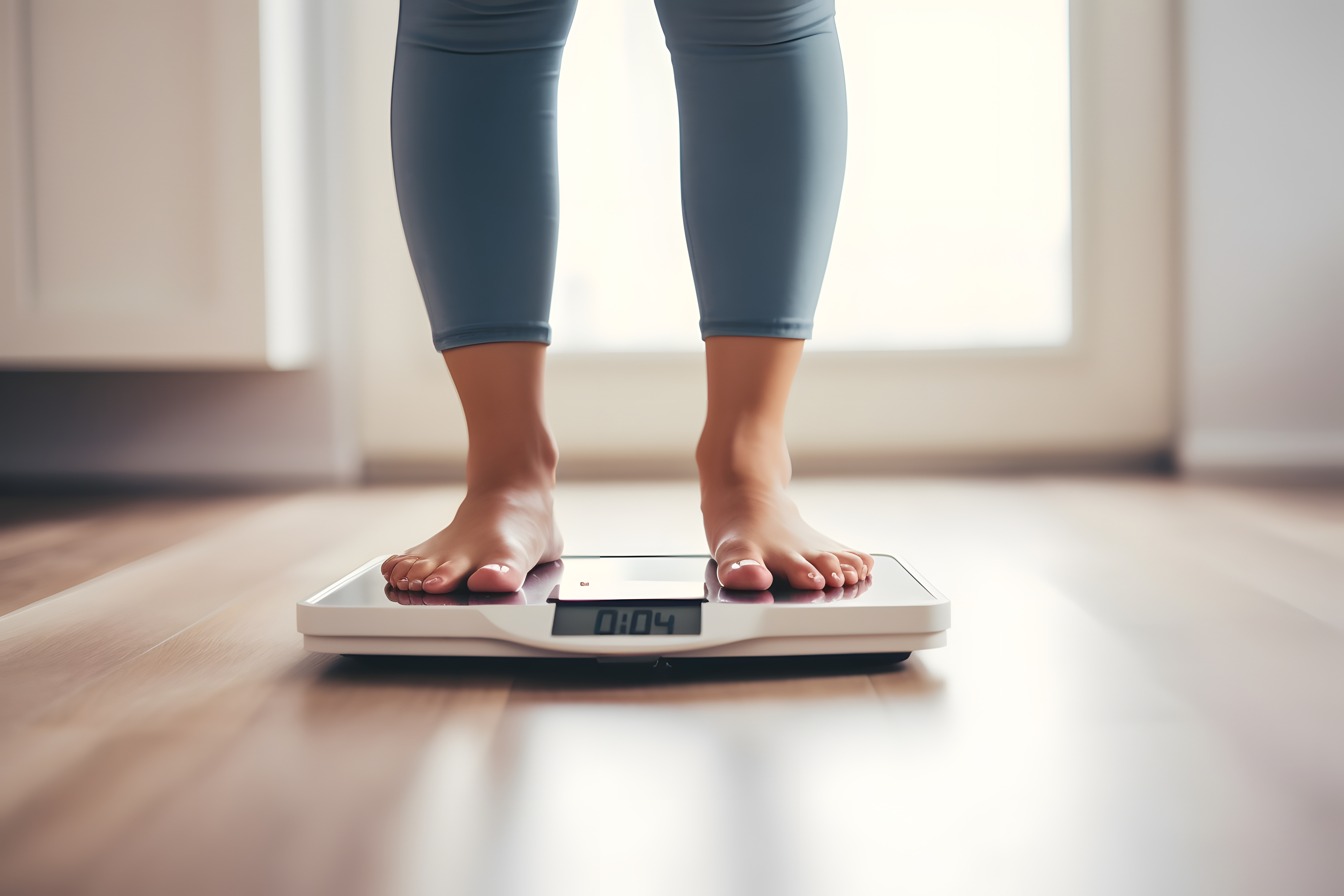Weight Loss After Menopause
Menopause is inevitable, but no two women experience it the same way. This (plus centuries of not talking about women’s reproductive health in general...) means many women don’t know what to expect from their bodies in their post-menopausal years—and they especially don’t know what to do about the weight.
Weight Gain During Menopause: A Major Concern For Women
Menopause marks the end of a woman’s potential childbearing years. A woman is considered to be post-menopausal after she has not experienced a period for one complete year.
Weight gain is a documented symptom of the menopausal transition, with women gaining (on average) about one pound per year each year. About 20% of women will gain a significant amount of weight (≥10 lbs) and about 43% of post-menopausal women have a BMI of ≥30 kg/m2. It makes sense, then, that studies show weight gain is one of the menopausal symptoms women are most concerned about and want guidance on.
Low Estrogen is (Most Likely) The Culprit
Classic symptoms like hot flashes, brain fog, trouble sleeping, etc. are hallmarks of the menopausal transition, also known as perimenopause. These happen because of fluctuating levels of female sex hormones, including estrogen.
After menopause, estrogen levels stay low. There may be some lingering perimenopausal symptoms but for the most part, it’s low estrogen that shapes your post-menopausal years. Low estrogen can make it harder for you to stay at a healthy weight in your 60s and beyond.
Estrogen is not just a sex hormone, it also plays a part in breaking down energy and making new cells in the body. As estrogen decreases, your metabolism starts to slow. Estrogen is also used by the body to make bone cells. With less estrogen, the bones become weaker and more susceptible to fracture or osteoporosis.
When estrogen is low, the body changes where it decides to store fat. For most of a woman’s life, she will likely carry weight on the thighs and hips, versus the belly. However, that generally reverses post-menopause, when the body switches to storing fat in the abdomen—a more dangerous kind of fat called visceral fat that carries specific health risks, like cardiovascular disease.
How the Natural Aging Process Plays a Role
Besides declining estrogen, other general age-related factors can contribute to a woman’s weight gain later in life. As the body ages, it naturally starts to need less energy, which means it needs fewer calories than it did before. Continuing to eat like you’ve always eaten can lead to overeating, which can cause you to gain weight.
Getting older is also associated with an increased risk of injury from falls or other accidents. Whether these injuries were acquired while you were physically active or not, recovering from them can keep you away from the gym. Some chronic injuries might even make it extremely difficult for you to exercise overall, which can also lead to weight gain.
Prioritize Health at Every Age
Centering your health and self-care may or may not become easier with age, but the foundations of a healthy lifestyle and achieving your weight loss goals are still the same!
Focus on eating a balanced and nutritious diet full of whole foods. It’s especially important in your later years to get enough protein to conserve your muscles. Talk to your healthcare provider or work directly with a registered dietician (RD) to determine the best nutritional prescription for you at your age, health, and activity level.
There’s no need to succumb to a trendy, “quick-fix” diet in your golden years! Consider eating smaller portion sizes of the foods you already like. This will help you meet your lower-calorie needs without depriving yourself of your favorites.
Continue to prioritize getting your exercise in. Cardio exercises will not only get the heart pumping and fat burning, but they’ll also boost your cardiovascular health. Low-impact workouts can help keep you safe from injury, so you can keep moving. Incorporating strength training is a must-have, as well. It can help counter both the natural loss of muscle from aging and protect your bones from low estrogen.
When Diet and Exercise Alone Aren't Enough
Just like with menopause, weight loss in general is not a one-size-fits-all experience. One thing is clear, though—weight gain in menopause isn’t like any other kind of weight gain. If you’re in your postmenopausal years and struggling to lose weight despite diet and exercise, consider talking to your healthcare provider about other possible strategies to help lose weight.
CON-1996-001 3/24

